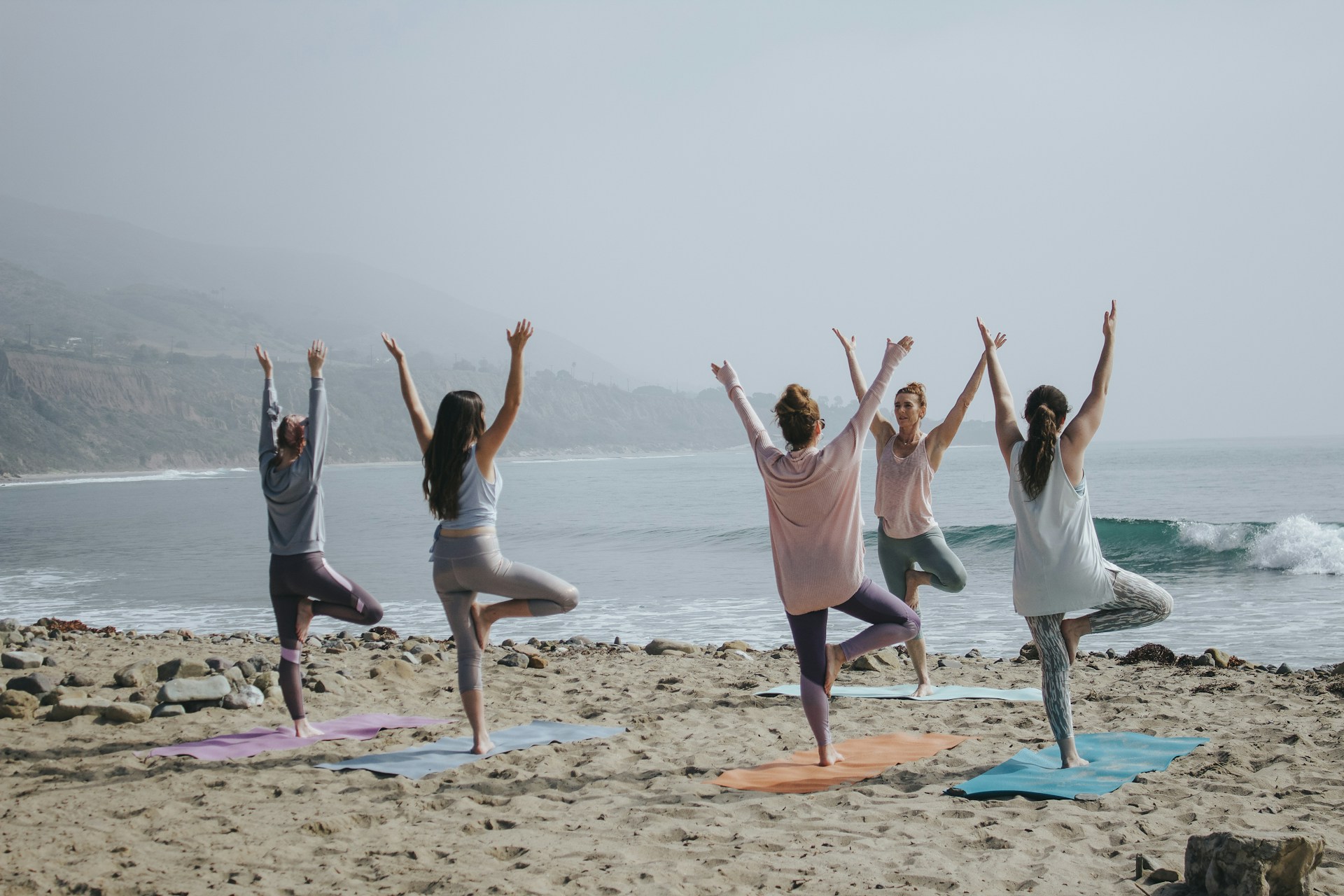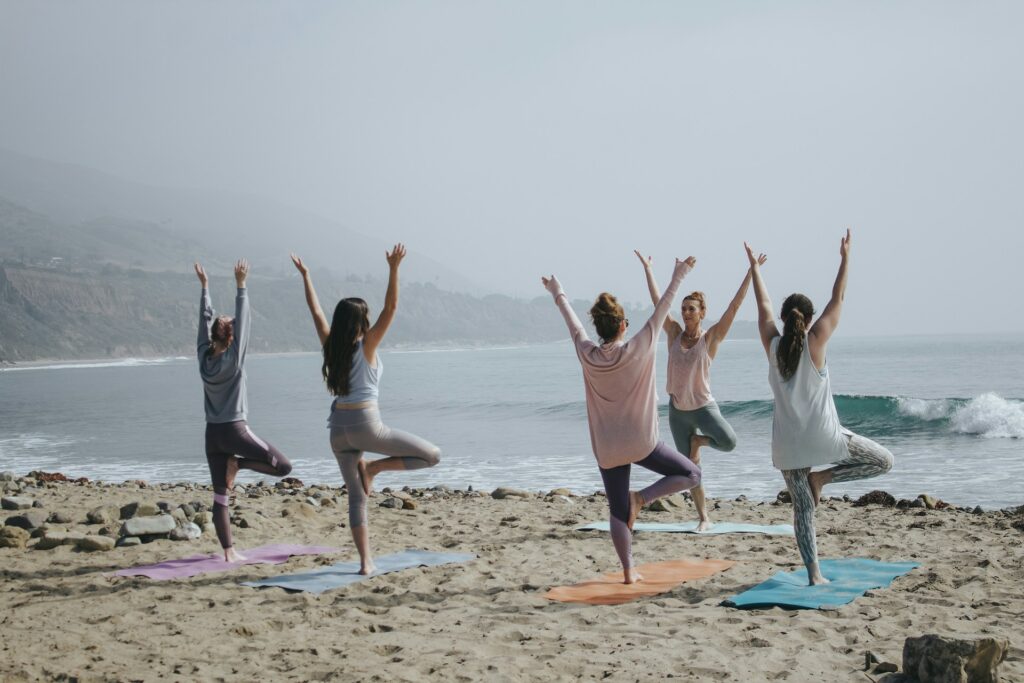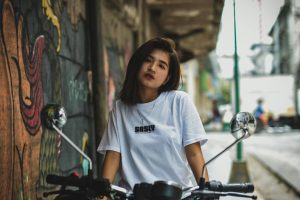Fashion and wellness are weaving together like never before, creating a bold new accessory that adorns the body and nourishes the soul. As you peruse the world of modern style, you’ll notice a remarkable trend: the clothes and accessories you wear are increasingly designed to promote a healthier, more balanced lifestyle. This fusion is transforming wellness into fashion’s most compelling accessory, blending aesthetics with the essence of well-being.
Consider the appeal of athletic wear that seamlessly transitions from the gym to the streets, carrying with it the ethos of health and vitality. Brands are now more focused on crafting items that resonate with the values of mindfulness and self-care. This shift is not just about using high-tech fabrics or sleek designs; it involves embracing a lifestyle that treasures both beauty and well-being.
As you explore your wardrobe, you may find yourself gravitating towards items that reflect this new philosophy. The allure is unmistakable—an invitation to not only look good but also feel connected to a greater sense of harmony. Your choices in fashion are beginning to speak volumes about your commitment to a balanced life, echoing the universal desire for a lifestyle that celebrates both style and health.

Why Wellness Is Becoming Fashion’s Most Powerful Accessory
The Evolution of Wellness in the Fashion Industry
The fashion industry’s relationship with wellness has grown from simple fitness initiatives to a broader embrace of holistic lifestyles. You can see this in the changing priorities of consumers and how brands are responding.
From Fitness to Integrated Wellness
Fashion and fitness were once almost synonymous as activewear became a staple. Then, the concept widened. Now, wellness in fashion means more than just looking good in gym gear. It’s about integrating self-care and mental health into everyday wear.
Brands are not just selling clothes; they are offering a lifestyle. Partnerships with wellness gurus and collaborations with mindfulness apps are now as common as classic runway shows. This shift makes wellness a core part of fashion, not just an accessory.
Changing Priorities Among Fashion Consumers
As a consumer, you’re more likely now than ever to value wellness in your fashion choices. The focus has shifted to sustainability, ethical labor practices, and fabrics that are kind to your skin. This move reflects a deeper understanding that fashion impacts not just personal style but your overall well-being.
Social media plays a role, too. Influencers and activists have spurred awareness, encouraging people to demand more from their fashion purchases. Transparency in the supply chain and authentic storytelling are becoming prerequisites for brand loyalty in this new landscape.
Brands Embracing Holistic Lifestyles
Brands are not just hopping on a trend; they are reimagining what they stand for. This means offering products that cater to all aspects of life—clothing that promotes comfort and wellness practices.
Many are incorporating natural materials and wellness-focused designs to ensure that what you wear contributes positively to your life. Companies are launching wellness-centric product lines and experiences, from stress-reducing fabrics to collections inspired by the natural world. Some brands are even aligning with local wellness services, such as cryotherapy in Jackson, MS, to promote a more integrated lifestyle approach.
Interactive workshops, virtual wellness sessions, and collaborations with lifestyle influencers highlight how brands are meeting the demand for a more holistic approach to fashion. By focusing on these elements, they aren’t just selling a product but fostering a community centered on health and well-being.
Why Wellness Has Become the Ultimate Fashion Statement
In today’s fashion world, wellness is not just an accessory but a statement of personal identity. Being healthy and balanced has become just as desirable as any designer label, influencing how we shop and dress.
Self-Care as a Status Symbol
Self-care rituals are now part of personal branding. Demonstrating a commitment to wellness signals not only a healthy lifestyle but also sophistication and success. Influencers post skincare routines and meditation practices, while celebrities endorse organic beauty products.
The connection between self-care and social prestige has grown, turning wellness into the latest marker of status. Publicly showing your wellness journey has become a way to express refinement and individuality.
The Rise of Mindful Shopping
Shoppers are becoming more intentional about their purchases. Choosing ethically made and sustainable brands is not just about fashion; it’s a reflection of values. You align with brands that prioritize health and the environment, ensuring that what you wear and use supports a cause.
This mindful approach to shopping creates a personal narrative that speaks of responsibility and care for the world around you.
Merging Style With Wellbeing
Clothing and accessories are evolving to offer more than just aesthetics. Brands are using materials that promote comfort and health, like fabrics with cooling technology or items infused with essential oils. This shift means you no longer have to choose between style and wellbeing.
The integration of wellness into fashion allows you to express your personal style while supporting your health and comfort in your daily life.
How Wellness Is Transforming Fashion Branding
Fashion brands are increasingly intertwining wellness into their business strategies, leveraging collaborations and innovative campaigns to engage consumers. This shift leads to more meaningful connections with audiences who value health and well-being as much as style.
Collaborations With Wellness Influencers
Fashion brands are teaming up with wellness influencers to reach audiences seeking authenticity and healthy living. These collaborations tap into loyal, health-conscious followings and boost brand credibility.
Focusing on shared values like sustainability and mental wellness, influencers’ content—featuring yoga, meditation, and mindful living—aligns naturally with comfort-focused fashion lines. By blending style with wellness, brands foster deeper, lifestyle-driven connections with consumers.
Campaigns Promoting Mental Health
Mental health campaigns are becoming central to fashion’s social responsibility efforts. By addressing stress, anxiety, and stigma, brands create supportive, relatable messaging that resonates with today’s consumers.
Collaborations with mental health organizations and sharing real stories build authenticity and community. To make these efforts inclusive and accessible worldwide, some brands are investing in professional medical translations to accurately convey wellness messages across languages and cultures. These campaigns do more than raise awareness—they create emotional ties with consumers that go beyond clothing.
Product Innovation for Health-Conscious Shoppers
To meet growing demand, brands are developing products with features like antimicrobial fabrics, moisture-wicking materials, and skin-friendly textiles. These innovations support active, health-conscious lifestyles without sacrificing style.
Sustainable athleisure and eco-friendly activewear are now essentials. This approach—prioritizing comfort, function, and wellness—appeals to consumers seeking clothing that fits seamlessly into a balanced, healthy lifestyle.
The Future of Fashion and Wellness
Fashion and wellness are intertwining like never before, creating a holistic approach to style. By blending comfort, sustainability, and aesthetic appeal, new trends are emerging that emphasize health and well-being in how we dress.
Predicted Trends in Wellness-Focused Fashion
Future fashion will feature clothing with physiological benefits like reduced inflammation and improved circulation. Expect increased use of infrared and bio-responsive fabrics that offer therapeutic support throughout the day.
Collaborations between fashion brands and wellness experts are producing collections that blend style with functionality.
Wearable tech will also become more common, allowing you to track health metrics through your clothes—appealing to both style-savvy and health-conscious consumers.
Sustainability and Mindful Manufacturing
Eco-conscious fashion is evolving with a stronger focus on well-being. Designers are prioritizing sustainable, skin-friendly materials like recycled fabrics and organic dyes—benefiting both the planet and the wearer.
Mindful manufacturing now emphasizes ethical labor and fair practices. Brands embracing these values influence more conscious buying habits, encouraging wardrobes that reflect both personal and global wellness.
The Lasting Impact on How We Dress
As wellness weaves into fashion, comfort and function are becoming key style drivers. Wardrobes are shifting toward versatile pieces—from activewear to WFH essentials—that support daily balance and flexibility.
Choosing wellness-focused clothing means investing in timeless, health-supportive pieces over fast fashion. This shift redefines dressing as a form of self-care, aligning personal style with overall well-being.
Conclusion
Fashion is no longer just about how we look—it’s about how we feel. As wellness becomes a core value for both consumers and brands, clothing is evolving to support healthier, more intentional lifestyles.
This shift toward comfort, sustainability, and self-care shows that true style now includes well-being. In this new era, what you wear is a reflection of how you live.

fashionabc is a fashion technology platform, comprising a digital directory and various other digital tools and supply chain solutions for the fashion industry ecosystem, that focus on ethical fashion and sustainability. We are building inclusive digital transformation tools for fashion professionals who are willing to take steps towards a more sustainable ethical fashion industry, by adopting AI and DLT blockchain technology.
* building digital profile and IP solutions for fashion businesses
* tackle issues such as provenance and counterfeit in supply chain
* contribute to the construction of a meritocratic ethical fashion industry which is certified and part of the circular economy











